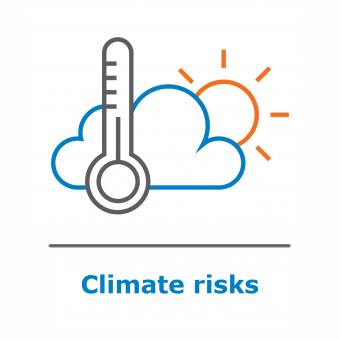Our environmental approach
The oil and gas sector is crucial for addressing global energy demands, yet it must also reconcile these requirements with ecological preservation. Aware of the consequences our operations bear on both the environment and neighboring communities, we are dedicated to reducing these impacts through mindful practices and ongoing enhancement.
We are committed to advancing environmental stewardship to protect the air, water, and land in our areas of operations and we consistently invest in innovative and cost-effective solutions that are guaranteed to drive further responsible development.
We acknowledge the responsibility to be compliant with applicable environmental regulations in the locations where we operate, and to diminish the impacts we produce. Thus, we strive every day to improve our performance and we continually prepare to respond to future challenges and opportunities, while minimizing our impact.
Our environmental strategy and objectives cover regulatory compliance processes and procedures, responsibility assignment, training, emergency preparedness, alignment with the best techniques available in the industry (BAT/ BREF), monitoring and measurement, and environmental investments, as well as regular auditing of our performance.
We have a multifaceted approach to environmental management encompassing regulatory compliance, risk management, stakeholder engagement, and a commitment to transparency, aiming not just to meet but to exceed the industry standards.
We have various programs in place to assess environmental aspects for each location, manage potential environmental risks and mitigate impacts. They reflect upon the specific of the company’s activity and include the following:
- Environmental Management program
- Waste Management program
- Investment program approved at the company level (projects carried out mainly in the operational activity and which aim to reduce the impact on the environment and communities).


















